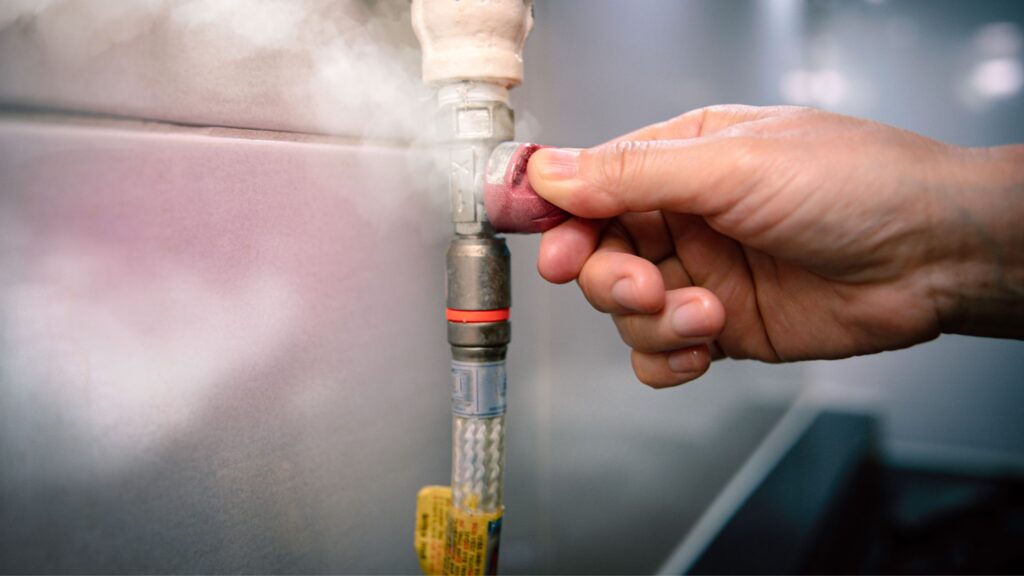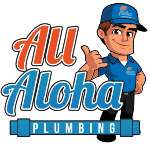Gas leaks are among the most hazardous issues a property owner can encounter, posing serious risks to health and safety. Left unchecked, these leaks can lead to fires, explosions, or extensive property damage, potentially disrupting your life and causing significant financial strain. Are gas leak repairs covered by insurance? This is a crucial question for homeowners, where maintaining safe and functional gas lines is essential.
While insurance policies may provide some relief, understanding the specifics of coverage is essential. Factors such as the cause of the gas leak, the type of insurance policy you hold, and additional affirmations can determine whether your repair costs will be covered. This guide will break down the complexities of insurance coverage for gas leaks, explore the common causes of gas line issues, and highlight the types of coverage available, ensuring you are well-prepared to handle any situation with confidence. Stay informed to protect your home and loved ones effectively.
Are gas leak repairs covered by Insurance??
The answer largely depends on the specifics of your insurance policy and the cause of the gas leak. Most standard homeowner insurance policies cover sudden and accidental damage to gas lines but might exclude coverage for issues caused by wear and tear or poor maintenance.
| Scenario | Covered by Insurance? | Explanation |
| Gas line damaged due to a fire | Yes | Fire damage is a standard covered peril. |
| Damage caused by natural disasters | Depends (requires additional coverage) | Earthquakes or floods might require specific endorsements or separate policies. |
| Corrosion or wear and tear | No | Homeowner policies typically exclude routine maintenance issues. |
| Gas line damage from an accident | Yes | Accidental damage caused by a covered peril is usually included. |
| Gas appliance malfunction | Depends | Coverage may apply if the appliance caused sudden, accidental damage. |
Gas line damaged due to a fire
Gas line damage caused by a fire is typically covered by most homeowner insurance policies. Fire damage is considered a standard covered peril, ensuring that repair and replacement costs for gas lines damaged during the incident are reimbursed. This applies to accidental fires or fires resulting from covered risks, providing peace of mind to homeowners in Phoenix, AZ.
Damage caused by natural disasters
Coverage for gas line damage caused by natural disasters depends on your insurance policy. Standard policies often exclude earthquakes and floods, requiring homeowners to purchase specific endorsements or separate policies. Adding these coverages ensures your home is protected from unforeseen events that could severely impact your property, including gas lines.
Corrosion or wear and tear
Insurance policies generally exclude gas line damage caused by corrosion or wear and tear. Regular maintenance and inspections are essential to avoid costly repairs. Since these are considered homeowner responsibilities, it’s crucial to address ageing pipes before they become hazardous.
Gas line damage from an accident
If gas lines are accidentally damaged due to a covered peril, such as construction activities or a falling object, insurance usually covers the repair costs. This ensures homeowners are protected against unexpected incidents that may disrupt the safety of their property.
Gas appliance malfunction
Coverage for gas appliance malfunctions varies. If the malfunction leads to sudden, accidental damage to your property, your policy may offer coverage. However, routine appliance failures or improper installations may not qualify, emphasizing the importance of understanding your policy’s terms.
What Causes Gas Line Leaks?
Gas line leaks can result from various factors, many of which are preventable with proper care and maintenance. Understanding these causes is crucial not only for safety but also for determining whether gas line repairs might be covered by insurance.
Corrosion or Aging Pipes
Over time, gas pipes are exposed to environmental elements that cause them to deteriorate. Rust and corrosion weaken the pipes, leading to small cracks or leaks. Older homes are particularly susceptible, as their gas lines may not meet current safety standards.
Accidental Damage
Construction work or landscaping activities, such as digging in your yard, can inadvertently damage underground gas lines. These incidents often occur when utility lines are not properly marked or precautions are not taken during excavation.
Extreme Weather Events
Natural disasters like earthquakes, floods, or severe storms can shift or rupture gas lines. Phoenix, AZ, homeowners should be especially cautious during monsoon season when heavy rains and flooding can destabilize underground pipes.
Poor Installation or Repairs
Faulty installation of gas appliances or pipes by unlicensed professionals can result in leaks. Similarly, substandard repairs may fail to address underlying issues, leading to further damage over time.
Tree Root Intrusion
The roots of large trees can grow into underground gas lines, causing punctures or blockages. Regular inspections of utility lines near trees can help prevent this issue.
Will Insurance Cover Natural Gas Leaks?
Natural gas leaks can pose significant risks to your home and safety. When it comes to insurance, understanding the nuances of coverage is essential to avoid unexpected financial burdens. While most homeowner insurance policies protect damages resulting from natural gas leaks such as fire or explosions; they often exclude coverage for the leak itself unless it is caused by a covered peril. Let’s break this down further.
What Homeowners Insurance Typically Covers
If a natural gas leak leads to damage caused by a fire or explosion, your homeowner’s insurance is likely to cover the resulting repairs. These scenarios fall under the “sudden and accidental damage” category, which is a standard provision in most policies. For example:
- Fire Damage: If a gas leak causes a fire, your insurance policy will cover repairs to your home’s structure and any affected belongings.
- Explosion Damage: In cases where the leak results in an explosion, the policy will typically cover the cost of repairs and cleanup, including personal property damage.
What Homeowners Insurance Typically Excludes
Insurance policies generally do not cover the cost of fixing the gas leak itself unless the cause is explicitly covered. For instance:
- Ageing Pipes or Wear and Tear: If the gas leak occurs due to corroded or deteriorated pipes, the repair cost is likely to be excluded. Insurance companies view such issues as the homeowner’s responsibility for regular maintenance.
- Poor Maintenance or Negligence: If the leak results from neglect or improper installation of gas lines or appliances, it will not be covered.
Key Takeaway For Homeowners
For residents, it’s vital to review your insurance policy to understand what’s included and excluded. Since ageing infrastructure and extreme weather can increase the risk of gas leaks, consider adding optional endorsements like utility service line coverage or natural disaster riders to fill potential gaps in your coverage.
Regular inspections and proactive maintenance of your home’s gas lines are also essential. Not only do these measures enhance safety, but they can also help avoid out-of-pocket expenses for repair work that falls outside your policy’s scope. By understanding the specifics of your homeowner’s insurance, you can better prepare for unforeseen events and guarantee comprehensive protection for your home and family.

Types of Insurance Coverage for Gas Leak Repair
Different types of insurance policies may provide varying levels of coverage for gas leaks. It’s essential to know what your policy includes and whether additional endorsements are needed.
Standard Homeowner’s Insurance
Standard homeowner’s insurance is the most common type of coverage, protecting against sudden and accidental damages caused by covered perils. These perils often include events like fires, explosions, or other unforeseen incidents stemming from gas leaks.
What It Covers:
- Damage caused by a sudden gas leak resulting in a fire or explosion.
- Costs to repair or rebuild areas of the home affected by a covered peril.
What It Doesn’t Cover:
- Issues arising from wear and tear or poor maintenance, such as corroded or aging pipes.
Example:
If a sudden gas leak leads to a fire, your insurance will likely cover the resulting damage to your property. However, if the leak is due to neglected or aging pipes, the cost of repairs will fall solely on the homeowner.
Dwelling Coverage
Dwelling coverage focuses on protecting the physical structure of your home, including gas lines that are part of the property. This coverage applies when damages result from covered events, such as fires or explosions caused by a gas leak.
What It Covers:
- Repairs to gas lines and the home’s structure after a fire or other covered peril.
What It Doesn’t Cover:
- Damages caused by neglect, lack of maintenance, or routine inspections.
Example:
If a gas leak leads to a house fire, dwelling coverage would pay for the repairs to the structure. However, if the gas line was not properly maintained and this led to the leak, your claim may be denied.
Personal Property Coverage
Personal property coverage is designed to protect the contents of your home from gas-related incidents. It extends to items like furniture, electronics, and appliances damaged due to a gas-related fire or explosion.
What It Covers:
- Damage to personal belongings caused by a fire or explosion resulting from a gas leak.
What It Doesn’t Cover:
- Losses due to pre-existing conditions or poor maintenance of gas lines.
Example:
If a sudden gas leak leads to a fire that destroys your furniture or electronics, personal property coverage can help reimburse you for the loss. However, if the gas leak was caused by aging pipes that were not maintained, the repair costs for these items might not be covered.
Additional Endorsements
Additional endorsements are optional add-ons that expand your insurance policy to include specific risks not covered by standard homeowner’s insurance. In Phoenix, AZ, where natural disasters like earthquakes or floods can impact gas lines, these endorsements are particularly valuable.
What It Covers:
- Risks like earthquakes or floods that might damage homes and plumbing systems or gas lines.
What It Doesn’t Cover:
- General gas line wear and tear or indoor damage unless specifically included in the endorsement.
Example:
If an earthquake damages a gas line, an earthquake endorsement can cover the cost of repairs. However, you must purchase these endorsements separately as they are not included in standard policies.
Utility Service Line Coverage
Utility service line coverage is a specialized add-on that protects the external utility lines on your property, including gas lines. This coverage is particularly useful for underground lines that might be damaged by natural causes or accidents.
What It Covers:
- Repairs to external gas lines outside your home, such as underground lines leading to your property.
What It Doesn’t Cover:
- Indoor gas line repairs or damages caused by negligence or poor maintenance.
Example:
If a tree root punctures an underground gas line on your property, utility service line coverage would apply. However, damage to indoor gas lines or issues caused by aging pipes wouldn’t fall under this policy.
Final Words
So, Are gas leak repairs covered by insurance? While many homeowner insurance policies provide coverage for specific scenarios involving gas leaks, such as those caused by accidental damage or natural disasters, understanding the details of your policy is vital. Knowing what is and isn’t covered can help you avoid unexpected financial burdens during an already stressful situation.
Regular inspections, proper maintenance of gas lines and appliances, and ensuring safe installation practices can significantly reduce the likelihood of leaks. Additionally, being informed about the exclusions in standard insurance policies; such as coverage for wear and tear or gradual deterioration can help you make more informed decisions about optional coverage or affirmations that provide added protection.
Take the time to review your policy and consult with your insurer to identify any gaps in coverage, guaranteeing you have comprehensive protection and peace of mind for your home and loved ones.

